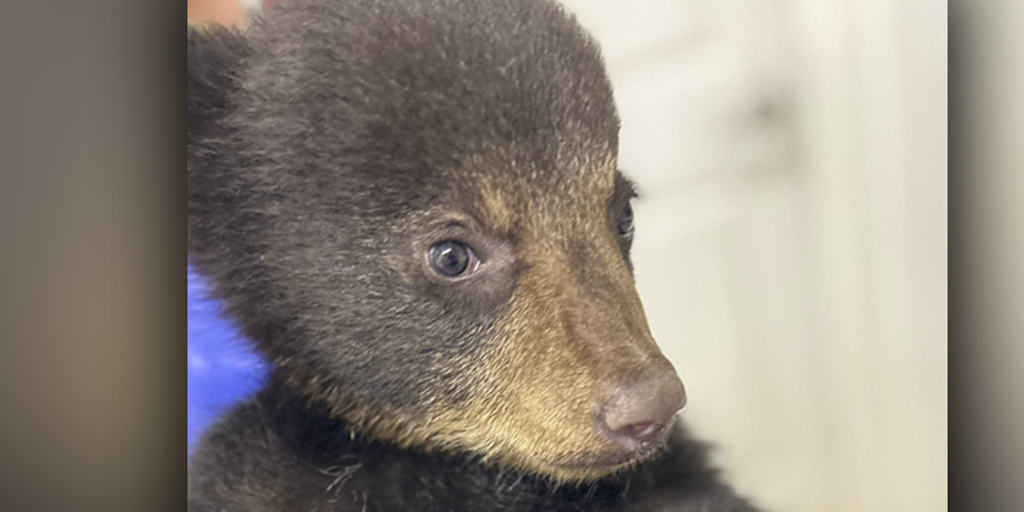Two weeks after a disturbing video surfaced showing people pulling bear cubs out of a tree for selfies, there’s some heartening news from a wildlife refuge. The Appalachian Wildlife Refuge has been caring for one of the orphaned cubs from the incident, and they’ve shared that she’s now stabilized.
After a police call, the North Carolina Resources Wildlife Commission found this particular cub, while her two siblings managed to escape the photo shoot, likely to reunite with their mother. The commission then entrusted her to the Appalachian Wildlife Rescue, one of the two rescues in the state participating in the Black Bear Cub Rehab Program.
Savannah Trantham, the Executive Director of the Appalachian Wildlife Refuge, explained that after some time adjusting to their care, the cub was introduced to another orphaned cub already under their care. Both cubs are reportedly thriving, exhibiting healthy behaviors like eating well and interacting with enrichment activities. The refuge team remains optimistic about their eventual release back into the wild.
During their time at the refuge, the bear cubs are kept separate from other animals in their natural habitat. They’re provided with a specialized diet, and human contact is minimized to ensure they retain their wild instincts.
The rehab program focuses on helping the cubs gain weight and learn essential survival skills until they’re around 7-8 months old. Special efforts are made to mimic natural conditions, including making the bears search for their food daily.
Trantham stressed the financial strain of caring for these cubs, with costs ranging from $2,000 to $3,000 for one cub’s food alone during its stay. Medication and habitat maintenance can further escalate expenses, placing pressure on the nonprofit’s resources.
The incident underscores the importance of respecting wildlife and avoiding unnecessary human interference. Trantham urged people encountering wildlife they suspect may be orphaned to seek help from licensed wildlife experts rather than intervening themselves.
She emphasized that while this case involved a black bear cub, similar incidents affect a wide range of wildlife species daily. The rehabilitation work carried out by organizations like the Appalachian Wildlife Refuge is crucial in mitigating the negative impacts of human interaction and fostering a more compassionate coexistence with wildlife.















































